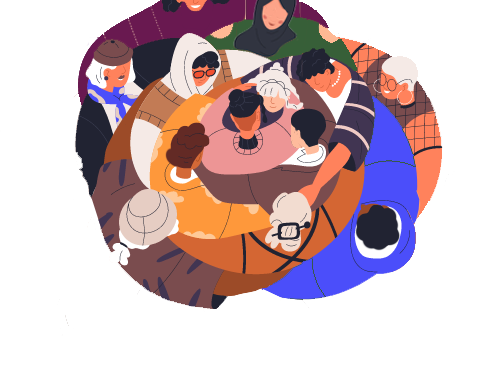This position paper was drafted by the GPR2C ahead of the 10th edition of the World Urban Forum, which took place from the 8th to the 13th of February 2020 in Abu Dhabi (UAE), under the theme “Cities of Opportunities: Connecting Culture and Innovation”. The paper seeks to highlight the importance of the right to the city in the promotion of cultural diversity under the framework of implementation of global agendas such as the Sustainable Development Goals and the New Urban Agenda.
The right to the city is in the right of all inhabitants (present and future, permanent and temporary) to use, occupy, produce, govern and enjoy just, inclusive, safe and sustainable cities, villages and settlements, which are understood as common goods.
As stated in the WUF10 Background Paper, the 2030 Agenda for Sustainable Development and the New Urban Agenda (NUA) have placed culture at the forefront of current debates on urbanization. Culture –understood in its broad sense of knowledge, art, beliefs, capabilities, language, habits, morals and behaviors– and cultural diversity are fundamental for the full implementation of the Right to the City.
Culture and cultural diversity are critical for promoting cities that are free of discrimination, embrace gender equality and ethnic, racial and social diversity, and enhance participatory democratic processes. Culture is also a tool toward inclusive citizenship, one in which all inhabitants, present and future, permanent and temporary, are equally considered.
The 2030 Agenda and the New Urban Agenda cannot be fully implemented if all of society is not involved. Big sectors of our societies are being left behind and see their civil, cultural, economic, political and social human rights violated. That is particularly the case for working people, currently under threat by labor and economic reforms that undermine the very basis of the social contract. It is also the
case for migrants and refugees or women who suffer from patriarchy and gender violence; all of whom are usually the most impacted by climate change and yet are given little opportunity to take part in the political process.
Legislation is fundamental to provide a binding framework to the Right to the City. National government must not only sign and ratify treaties guaranteeing cultural rights and diversity, but implement them by enforcing regulations to ensure cultural diversity. Local governments, while respecting national laws, can also go beyond, enforcing further regulations and addressing specific issues pertinent to a given local context.
Implementing the Right to the City through Cultural Diversity
- The Right to the City fully embraces diversity in gender, identity, ethnicity, religion, heritage, collective memory, cultural practices, and sociocultural expressions.
- It entails fully recognising the role of culture, neighboring, and stakeholding as a lever for social cohesion, social capital, innovation, safer cities, self-expression, and identity.
- It requires that the city creates possibilities for encounters, interactions, and active connections, in which reciprocal relations and mutual understanding advance a renewed form of urban life.
- It requires respecting and valorizing all religions, ethnicities, languages, cultures, and customs.
- It also envisions the promotion of artistic expressions as a means to unlock social potential and creativity, and to build community and solidarity.
Central to city life is the use of public spaces without discrimination. This pillar finally calls for the need to acknowledge recreation and leisure as part of a full life.
Implementing the Right to the City through the promotion of cultural diversity does not mean upholding cultural and traditional practices inconsistent with human rights and the corresponding obligations of States and their organs. Rather, cultural diversity as an element of the Right to the City falls within the framework of the global efforts undertaken to localize the Sustainable Development Goals and implement the New Urban Agenda (NUA). In order to promote cultural diversity, all levels of government should:
- Ensure access to culture and cultural facilities for all.
- Develop cultural and educational policies that build cohesive societies, whilefostering equality of opportunities and praising diversity.
- Respect, protect and promote diverse customs, languages, memories, identities, expressions, and socio-cultural forms.
- Combat the prevalent cultures of discrimination, including patriarchy, colonialism and apartheid.
Download here the GPR2C position paper on cultural diversity as a basis for the Right to the City




